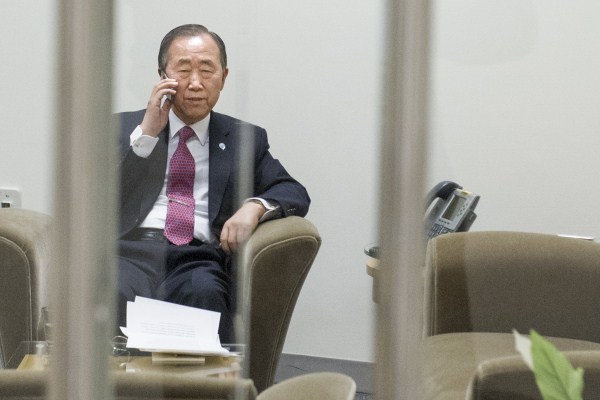Does it matter who runs the United Nations? There was a frisson of excitement at U.N. headquarters at the start of this month when a consortium of advocacy groups launched a campaign to overturn the “outdated and opaque” process for selecting the secretary-general. But at a time when increasing global divisions threaten to reduce the U.N. secretariat’s ability to improve international cooperation, there are questions about how much impact the post can really have.
The current secretary-general, Ban Ki-moon, steps down at the end of 2016. As I have previously argued, Ban took far too long to find his feet at the U.N. after taking office in 2007, but he has improved over time and especially in recent years . He has been a consistent champion of long-term causes, including the battles against global poverty and climate change, while tackling more-immediate crises such as the Ebola outbreak with growing determination.
After eight years on the job, Ban reportedly still finds the U.N. machine perplexing and frustrating. Many U.N. officials continue to view the former South Korean foreign minister as an outsider to their organization. But he may yet take the credit for some signature multilateral deals scheduled for next year, including pacts on reducing carbon emissions and new international development goals. He is still trying to fix bits of the U.N. system that annoy him. He has always grumbled about the inefficiencies of “blue helmet” peace operations and has just launched a panel of veteran peacemakers to help resolve these.

